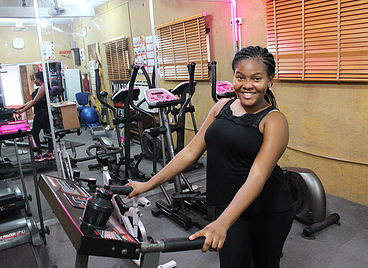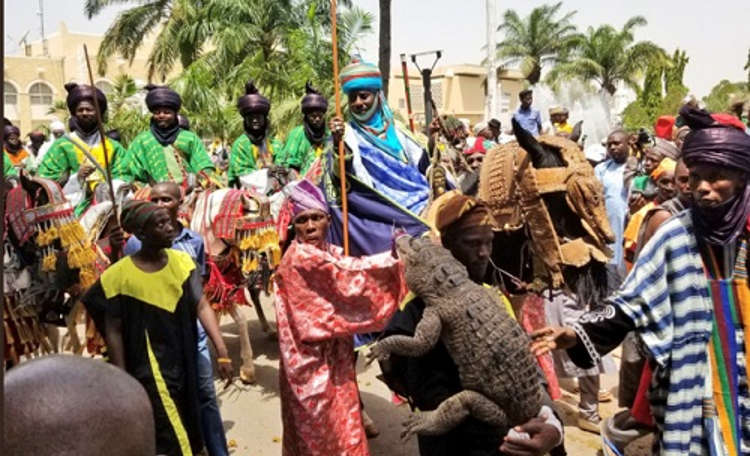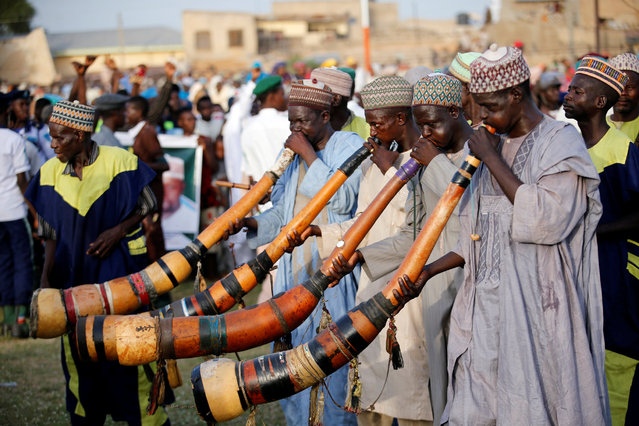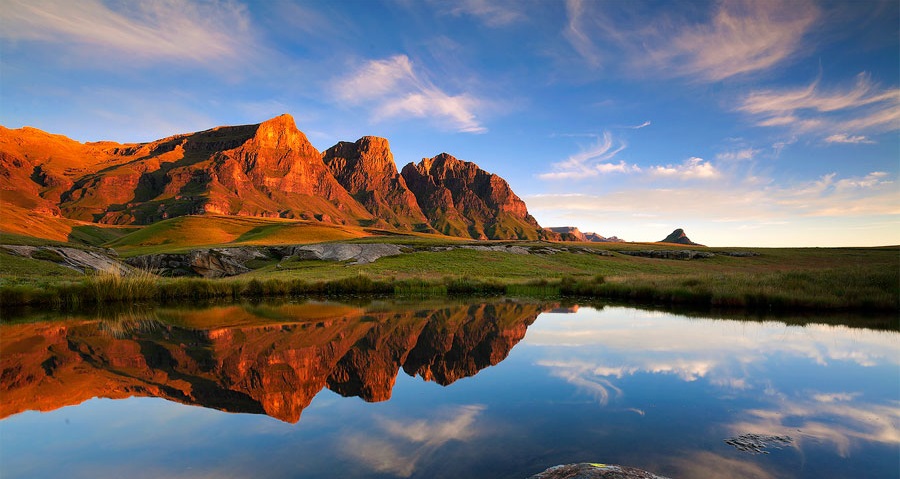Horse riding made exciting at Kano Durbar

Durbar festival is an annual festival celebrated in several cities in Nigeria. It is celebrated at the culmination of Muslim festivals Eid al-Fitr and Eid al-Adha. It begins with prayers, followed by a parade of the Emir and his entourage on horses, accompanied by music players, and ending at the Emir?s palace. Durbar festivals are organized in cities such as Kano, Katsina, and Bida, and are considered tourist attractions.
Twice every year, (July/August ending and Mid December every year) during the Muslim Eid al-Mubarak and Eid-El-Fitr Sallah Celebrations. The Emir of Kano hosts these very colorful events. Beautiful costumes, decorated horses, horse racing, gunshots and arrays of cultural dancers and are all part of these celebrations. Everybody, especially young boys and girls, dressed up in their best attires line up major streets of the city to hail the Emir as he passes in an elaborate procession through the major streets. Kasur Kurmi products are entirely hand-made with traditional and historical attachments.?
The Durbar festival had been in Hausa land for more than 500 years. It was introduced by Sarki Muhammadu Rumfa of Kano in the late 14th century, as a way of demonstrating military power and skills before going to war. The festival is also an opportunity for local leaders to pay homage to emir throughout the Jahi cheering.
The Durbar festival featured prominently in the 2nd World Black and African Festival of Arts and Culture sometimes known as Festac 77. Since Festac, the colonial origins were gradually phased out and the events were linked with pre-colonial traditions such as the importance of horses for military purposes and ceremonies in the Bornu Empire and the ceremonies of ?Hawan Sallah? and ?Hawan Idi?.
In the northern reaches of Nigeria lies two cities, Kano and Katsina, both famous for Durbar festivals. Kano is the oldest city in West Africa settled over 1000 years ago by the Hausa people. Today, it is the second-largest city in Nigeria. The old city of Kano is surrounded by a massive 11th-century mud-brick wall that extends 17.7 kilometers. The wall still stands and must be navigated by a series of sixteen gates.? Not to be outdone, Katsina is surrounded by 21 kilometers of a mud-brick wall and is Nigeria?s northernmost city. Both cities are predominantly Muslim, comprised mainly of Fulani and Hausa ethnic groups.
In the long history of a military parade, the origin of the word, durbar, comes from Urdu, darb?r, (dar meaning door and b?r meaning entry or audience.) In Nigeria, the Durbar dates back 200 years when horses were used in warfare to protect the Emirate. Each noble household was expected to defend the Emirate by forming a regiment. Once a year, the regiments would gather for a military parade to demonstrate allegiance to the Fulani ruler, by showcasing their horsemanship, readiness for war, and loyalty.
The procession starts with groups of horses lead by noble households and district heads. Horse and riders circle the grounds counter-clockwise, pausing to pay respect to the dignitaries.
The procession is strictly men only dressed in magnificent turbans many with one ?ear? or two stickings out denoting their royal lineage. Young and old participate to ensure that tradition is observed through generations.??
Rhythms of the talking and traditional drums fill the air with the shrill of trumpeters and fluters. Acrobats flip and catch one another, musicians, warriors riding brightly armored horses make their way to assemble along the parade grounds. When hundreds of horsemen are on the parade grounds, the Emir?s procession begins down the center, including his guards, his sons, riderless horses for his wives, and camels.?
Finally, the Emir himself rides among his guards and servants amidst the shooting of flintlock muskets. The Emir is immediately recognized, veiled and clad in white with a huge fanning parasol lifts up and down over him. After he pays respect to the governor, the horse regiments race up to the Emir at a gallop to demonstrate their courage, agility, and respect.
This is a very interesting and entertaining festival that holds lots of tradition typical to the African setting to it, as such ensure that you time your next visit to Kano to just the moment of the festival so you don't miss out on all the fun.
Check this out for your detailed travel guide to Kano
Here is a list of the top 10 things you should do if you are in Kano. They are very exciting things that would cost little or no money at all.
Here are 10 various and exciting things the media will leave out when they talk about Kano. Check it out to know better.


